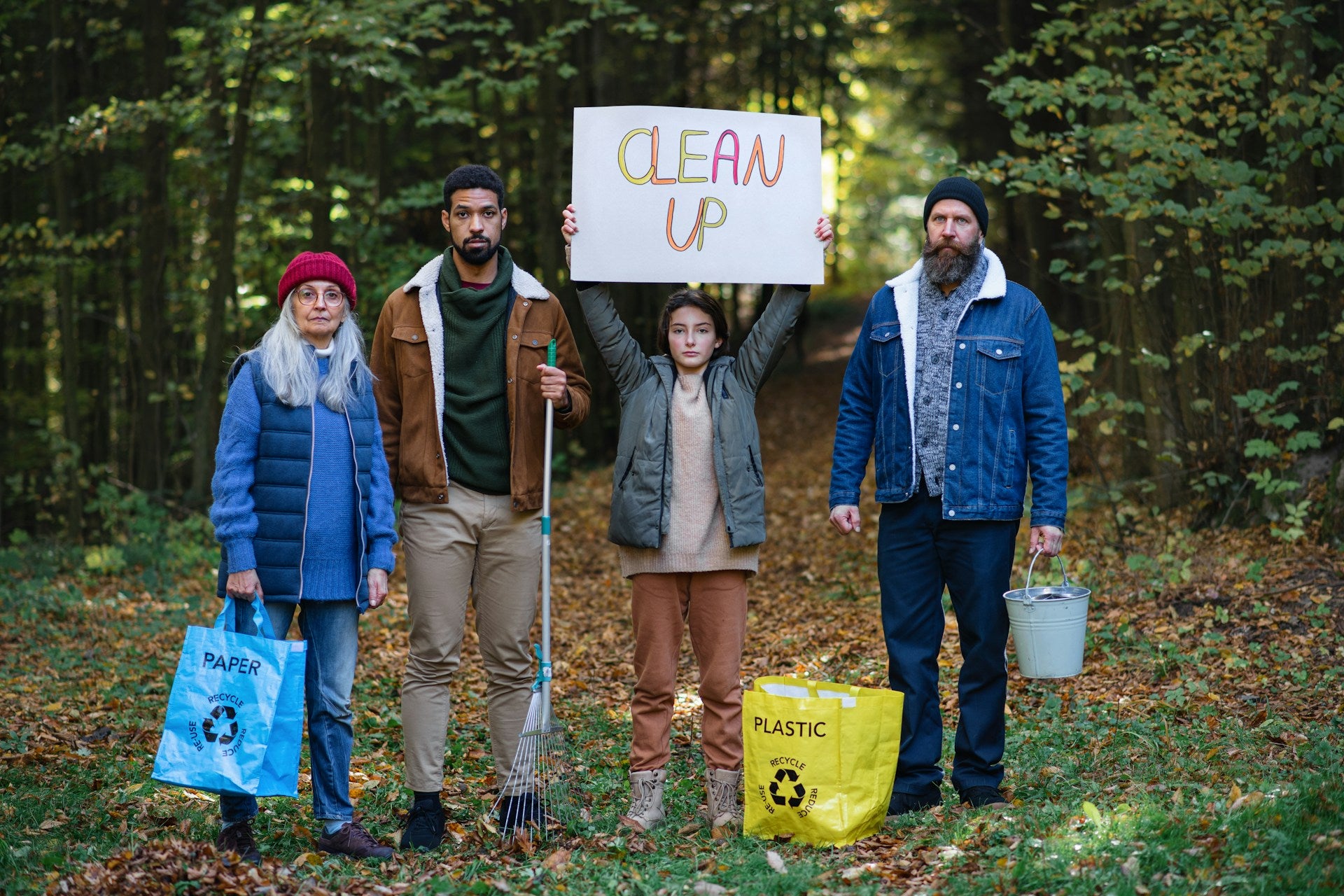Practice These Simple Habits and Have a Big Impact on Our Planet's Health
As we celebrate Earth Month, let's take a moment to reflect on the power of our everyday choices. Each one of us can make a positive impact on the health of our planet through small but meaningful actions. By adopting these ten easy and effective habits, we can create a more sustainable future for ourselves and for generations to come. Let's work together to protect our beautiful planet and inspire others to do the same!
1. Embrace Reusable and Refillable Products
Transitioning to reusable products is a foundational step in reducing waste. Opt for reusable shopping bags, water bottles, coffee cups, and food storage containers to cut down on single-use plastics. This simple swap helps prevent pollution, reduces the demand for material production, namely plastics, and encourages a shift towards a more sustainable consumption model. Choose refillable options to reduce your waste of items such as small self-care product containers with a pump top that cannot be easily recycled.

2. Incorporate Plant-Based Meals and Regenerative Food Choices
Shifting towards a plant-based diet even a few days a week can drastically reduce your environmental footprint. Conventional agriculture, particularly meat and dairy production, is a significant driver of deforestation, water consumption, and greenhouse gas emissions. By going plant-based, especially when you don't have access to local, regenerative options, you not only conserve resources but also support a system that is less taxing on our planet. Search for local organic farms that practice regenerative agriculture to encourage a sustainable farming method that heals our planet and sequesters carbon.
3. Reduce Home Energy Use
Small changes in home energy consumption can accumulate significant environmental benefits. Implement energy-saving measures like using LED bulbs, adjusting your thermostat settings, and turning off lights and appliances when not in use. Consider investing in energy-efficient appliances or solar panels to reduce your household's energy reliance and carbon emissions when it fits your budget.

4. Choose Sustainable Transportation
Rethink how you travel. If possible, walk, bike, or use public transportation instead of driving. These transportation alternatives significantly lower carbon emissions and reduce traffic congestion. When driving is necessary, consider carpooling or driving a fuel-efficient vehicle to minimize the environmental impact. Planning your trip, even if it's for your weekly errands, can also help to reduce your mileage and, therefore, your resource usage.
5. Buy Local and Seasonal
When not growing your own food, supporting local businesses and purchasing seasonal products reduce the carbon footprint associated with long-distance transportation. Local produce is fresher, often uses less packaging, and supports the local economy. Attending local farmers' markets or joining a community-supported agriculture (CSA) program are great ways to implement this habit. There is no shortage of incredible farmers' markets in Vermont. Use this Northeast Organic Farming Association of Vermont (NOFA) map to find one nearby!

6. Shop Mindfully
Be conscious of your purchasing decisions. Avoid impulse buying and opt for durable, repairable, and sustainably made products. Assess the necessity and lifecycle of each item you buy and strive to choose goods that offer environmental benefits, such as biodegradable materials or items made from recycled components.
Set the standard high for new items, reuse what you have whenever possible, and find creative ways to recycle items you can no longer use in their current form. A simple example of this is bath towels that are beyond repair. You can quickly cut them into smaller pieces to use as cleaning rags.
7. Commit to Recycling and Composting
Properly sorting your waste and committing to recycling and composting can dramatically reduce the amount of waste sent to landfills. Learn the recycling rules in your area and set up a home composting system to turn organic waste into valuable compost for your garden, reducing methane emissions and enriching soil without chemical fertilizers. Several in-home composting appliances, such as Lomi, make creating soil for indoor and outdoor plants simple.
Fun fact: In 2020, Vermont was the first state in the U.S. to make it illegal to throw food waste into the trash or landfills. Whether you live in Vermont or not, create your own "black gold" at home to embrace a more circular lifestyle.
8. Conserve Water and Keep it Clean
Water is a precious resource; conserving and keeping it clean are essential. Fix leaks, use water-efficient fixtures, and adopt water-wise gardening techniques. Simple actions like turning off the tap while brushing your teeth or using greywater for irrigation can profoundly affect water conservation. Switch to natural cleaning products and discontinue using synthetic fertilizers and pesticides in your garden to keep our collective waterways free of harmful chemicals.

9. Volunteer for Environmental Initiatives
Active participation in environmental conservation can amplify your impact. Engage in local clean-up drives such as Vermont's Green Up Day, which takes place annually on the first Saturday of May, tree planting events, or conservation projects. Volunteering helps the planet, strengthens community bonds, and spreads environmental awareness. Can't find enough volunteer opportunities? Create them for your community! You are a significant source of inspiration for those around you.
10. Educate Yourself and Share Knowledge
Knowledge is power. Educate yourself about environmental issues and sustainable practices. Stay informed through documentaries, books, and reputable websites. Share your knowledge with others to inspire and encourage a broader impact through collective action.
Bonus: Health is Energy
When you feel healthy, you have the energy to go the extra mile in your journey towards a sustainable lifestyle. Our health and the health of our planet are inextricably intertwined for myriad reasons. Take care of yourself by eating healthy foods, staying hydrated, exercising daily, and embracing strong social connections. You'll have the cognitive energy to remember your sustainable habits and be willing to follow through with your commitments. Even something as simple as walking back to your car to get your reusable bags can be challenging when your health is compromised. Take care of your health for your own well-being and the planet.
Adopting simple habits to your daily routine can have a significant positive impact on the environment. Let's pledge to make changes this Earth Month that will last beyond April. Every small action counts, and by incorporating these habits into our lives, we can create a healthier and more sustainable planet. Begin today and witness the positive impact grow over time.




Leave a comment